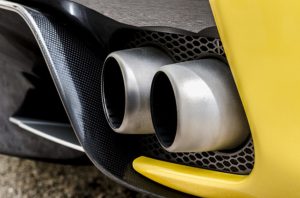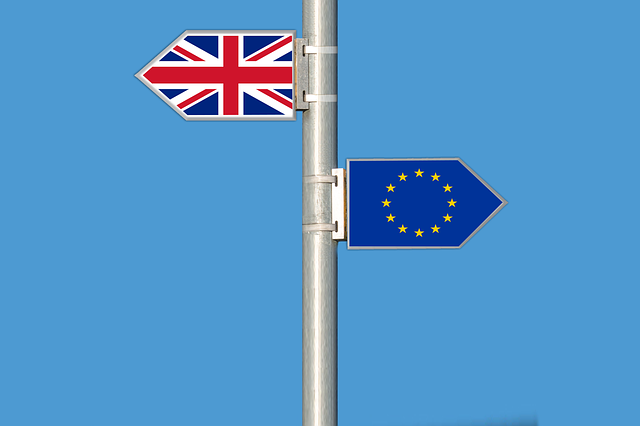Many seem to be agonizing over Brexit (64,996 Brits have applied for an Irish passport last year), others (Donald Trump) rejoice in the idea and understand that the UK want a identity of their own. There are many questions to be fired at Theresa May: How will Brexit help the EU economy? How will Brexit change business relationships over the world? How will EU’s security and standing be affected? Will Brexit affect the free movement of people in the EU and UK? The questions are endless. But let’s focus here on the most important industry out there: The Automotive, and how Brexit will impact it.
The Global Impact of Brexit on the Automotive Industry

The global auto industry market will suffer severe impacts due to Brexit. In 2015, 77.3% of cars produced in the UK were exported. According to the European Automobile Manufacturer’s Association, UK’s auto industry exports is worth around €14.6 billion, selling 2.63 million cars in 2015 and UK is Europe’s 4th largest assembler of cars. It is predicted that UK’s two biggest European markets, Ford and General Motors (Vauxhall), which are the most popular franchises in the UK, will suffer the impact of Brexit greatly.
Additionally, Ford and Volkswagen, the main importers into England will be at risk due to the currency struggle of the pound against the euro.  At the moment, the UK does not pay any tariffs to export cars thanks to the European Single Market agreement, making it a price-competitive option for external buyers. If the Single Market agreement will be impeached, it is predicted that automakers will move to other parts of Europe to produce cars in order to avoid tariffs that may be implemented against the UK’s Brexit decision.
At the moment, the UK does not pay any tariffs to export cars thanks to the European Single Market agreement, making it a price-competitive option for external buyers. If the Single Market agreement will be impeached, it is predicted that automakers will move to other parts of Europe to produce cars in order to avoid tariffs that may be implemented against the UK’s Brexit decision.
Japan’s currency, the yen, also rose against the euro after Brexit, meaning that Japan automakers are likely to lose about 15% in profits if they still partner with the UK. It obviously wouldn’t be in Japan’s interest to keep doing business with the UK. Toyota and Mitsubishi are likely to be hit the hardest when importing into the UK. If the European Union breaks up, the entire auto industry chain will be broken, causing huge disruptions in the supply chain.
The Effect of Brexit on the Irish Automotive Industry
If you are in Ireland and currently own a used car, your used car may fall in value. Those who are under a Personal Contract Plan (for example Joe Duffy Car Dealership offers great PCPs for their clients) are covered by a guaranteed minimum value for their car, so they will not be affected. However, what if car prices decrease and suddenly you find it a better option to buy a new car or purchase a used car in Ireland rather than opting for a PCP plan? Many Irish people have chosen to buy UK imported cars because of the attractive, lower prices, the free import of used cars, as well as lower vehicle registration tax (VRT).
 The worry is on the other side of the Irish sea, in the UK, where jobs will be lost and investment in the automotive industry will be at risk. Around 80% of cars produced in Britain are exported thanks to the EU Single Market. Brexit may mean that car manufactures will be less likely to want to produce in the UK. In order to meet the 2020/21 fuel emission regulations of 95 grams of CO2/km, fuel efficiency technology will have to be implemented in all newly produced cars, which also means a rise in production costs. With more fuel efficient vehicles, people will be more inclined to buy a car, rather than an old one, and this new technological demands will be another pressure on the UK from an economical standing.
The worry is on the other side of the Irish sea, in the UK, where jobs will be lost and investment in the automotive industry will be at risk. Around 80% of cars produced in Britain are exported thanks to the EU Single Market. Brexit may mean that car manufactures will be less likely to want to produce in the UK. In order to meet the 2020/21 fuel emission regulations of 95 grams of CO2/km, fuel efficiency technology will have to be implemented in all newly produced cars, which also means a rise in production costs. With more fuel efficient vehicles, people will be more inclined to buy a car, rather than an old one, and this new technological demands will be another pressure on the UK from an economical standing.
Will car manufacturers stop investing and producing in the UK? Will Irish people keep buying cheap, used cars at competitive prices from the UK? Will the UK leave the EU Single Market and pay tariffs? These are all questions up for debate, but one thing is for sure, nothing is certain!
Sources https://www.pwc.nl/nl/brexit/documents/pwc-brexit-monitor-impact-on-the-automotive-sector.pdf


